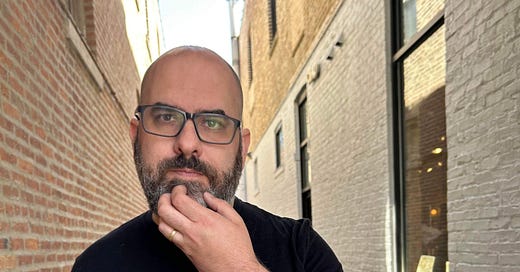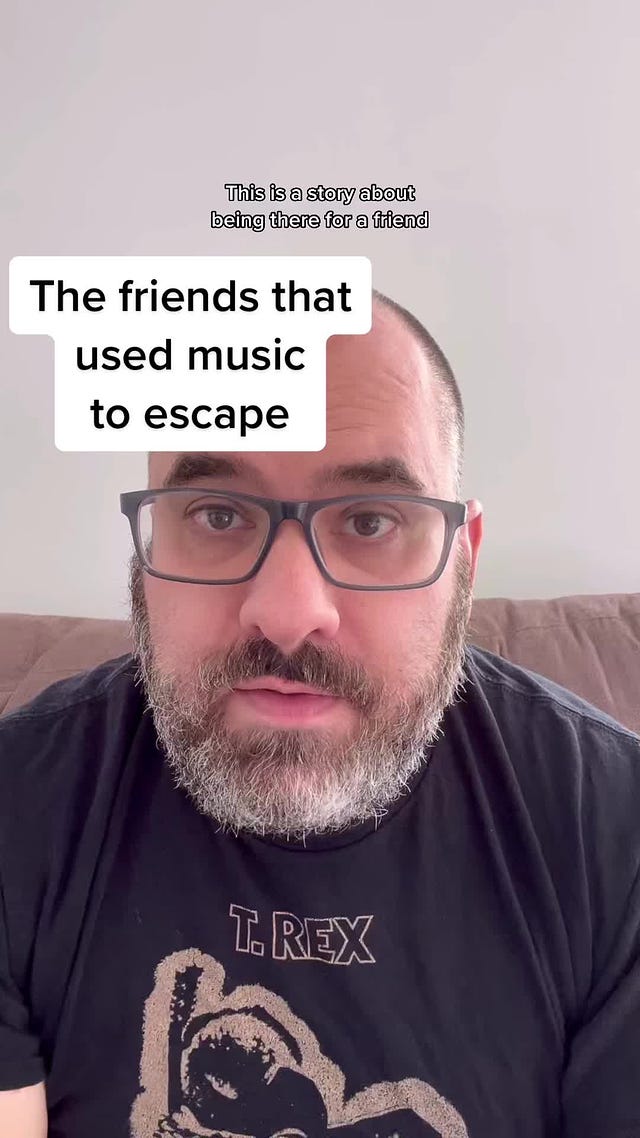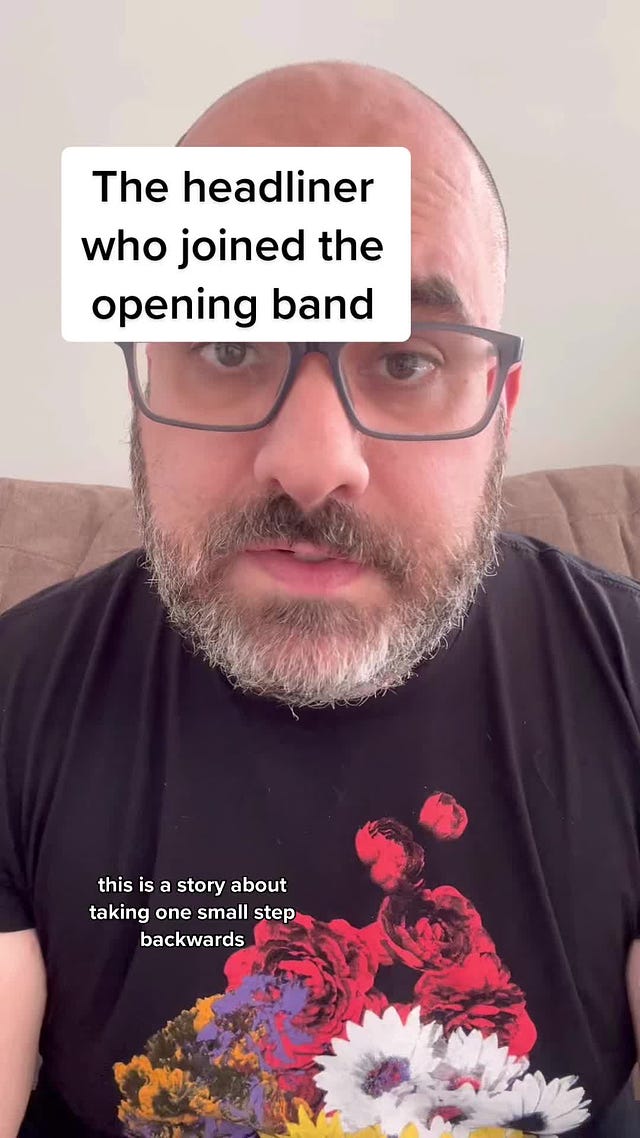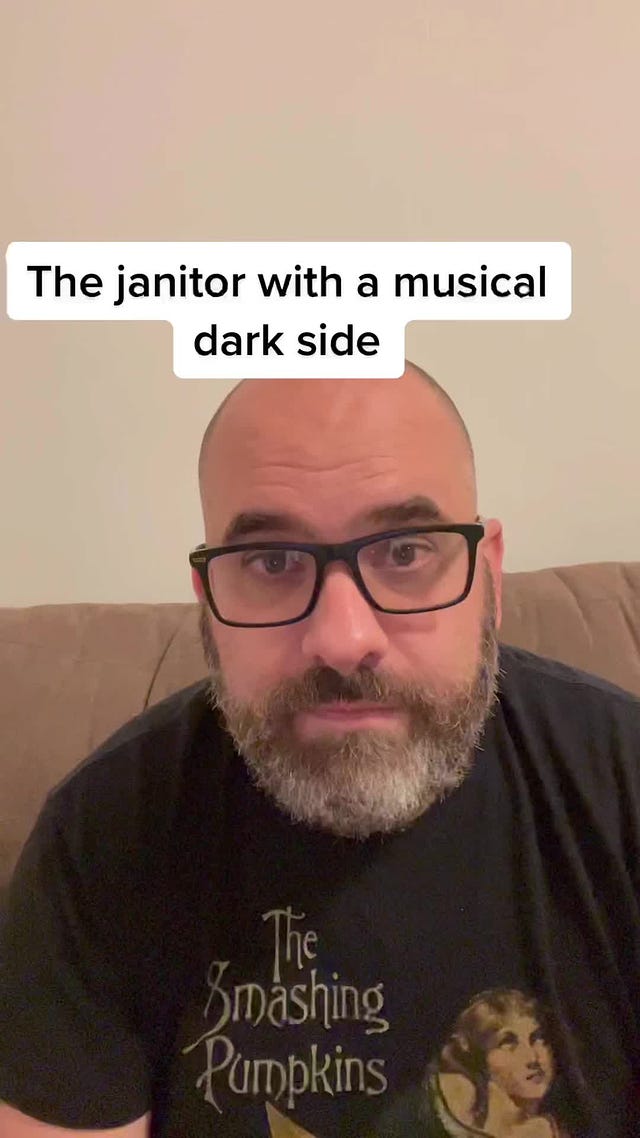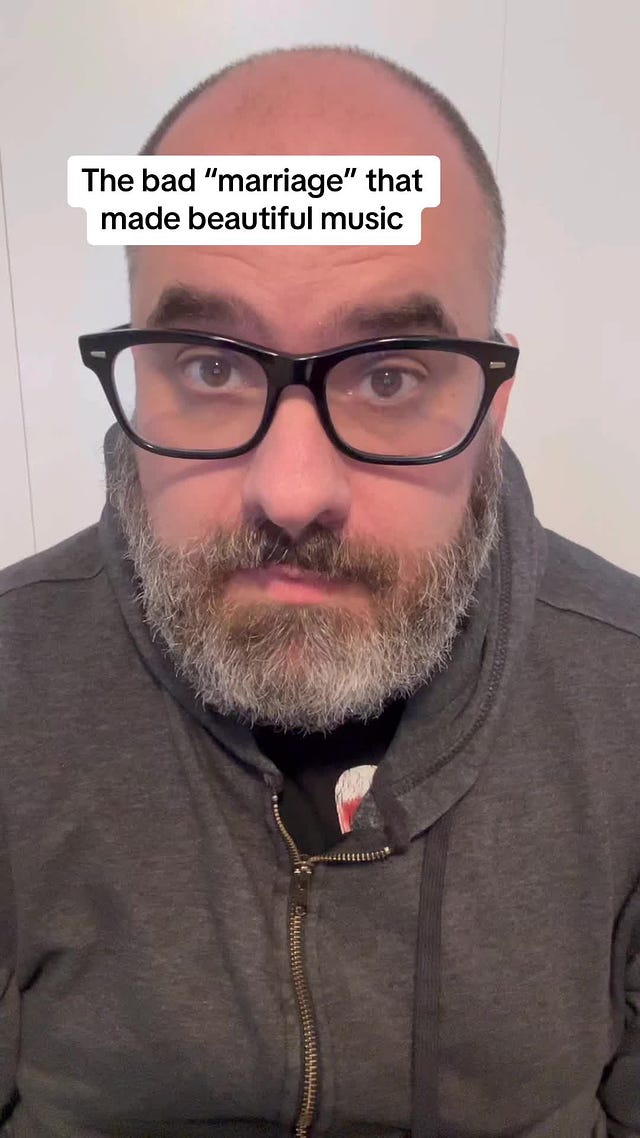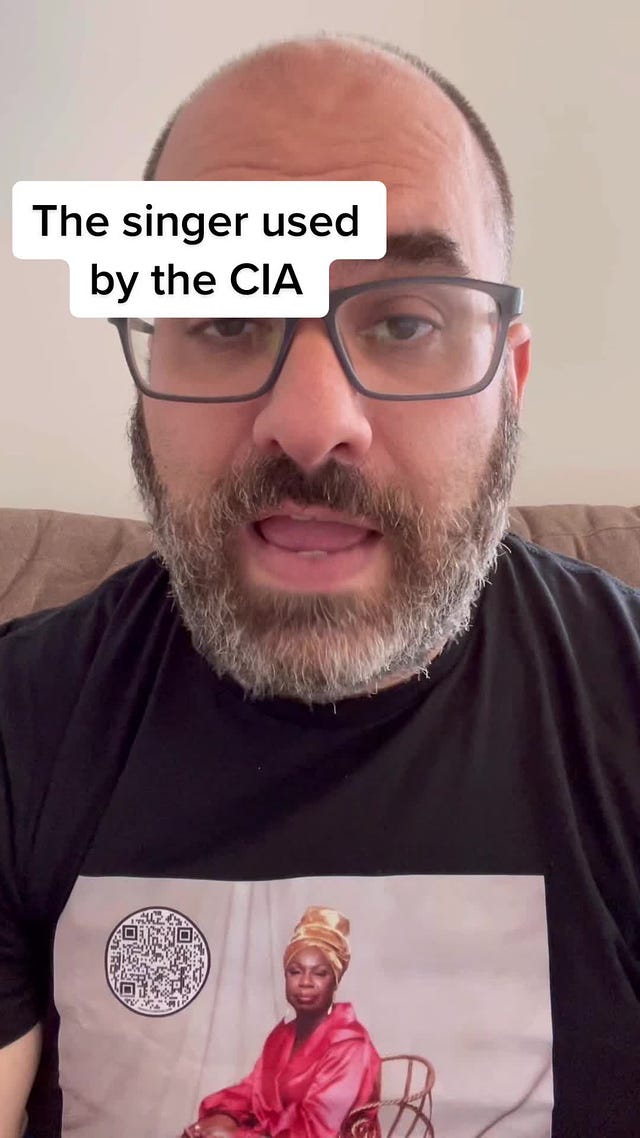Whispering Music's Secrets: A Conversation with Patrick Hicks
Patrick Hicks has been captivating people on TikTok with gripping stories of music's past. We spoke about how he's built such a large audience in such a short period.
I came across Patrick Hicks’ TikTok page a few years ago and was immediately enamored. He had this way of telling stories, sometimes about things you already knew, where it felt like you were learning them for the first time. I was not alone in my infatuation. Over the course of two years, Hicks has amassed over 500k followers across social media, receiving praise from the likes of Questlove and Janelle Monáe.
Over the course of an hour, Hicks and I spoke about what makes a good story, why the CIA duped Nina Simone, and how My Chemical Romance led to the creation of 50 Shades of Grey. If you want a weekly dose of musical knowledge sent directly to your inbox, subscribe to Hicks’ new newsletter by clicking here.
A Conversation with Patrick Hicks
You bill yourself as a music storyteller. Can you tell me what you think makes a good musical story?
I start by looking for some kind of theme that resonates with me. That’s why at the beginning of every video I say something like, “This is a story about resilience,” or something to that nature. That’s what the story is ultimately about. I can’t start every story by saying, “This is a story about four guys who met in high school and became a band.” That’s boring.
I also try to find a character to base the story around. Often, I try to pick an unexpected character. For example, when I told a story about The Cure, I decided to center it around their original drummer, Lol Tolhurst. Most stories about The Cure focus on Robert Smith. But using Lol as an entry point added a different perspective.
Is your goal objectivity? Like are you trying to act like an historian?
Not exactly. I try to recount people’s stories as they remember them. Lol Tolhurst wrote a book recently. My story was drawn from that. Maybe if some historian researched what he wrote, they might find some inconsistencies. That’s okay by me. I want that biased perspective of the person who was actually there.
 Tiktok failed to load.
Tiktok failed to load.Enable 3rd party cookies or use another browser
In the abstract, you need an overarching theme and an unexpected main character. Show how that worked in practice when you told a very compelling story about the founding of My Chemical Romance a few months ago.
That was actually a story that people requested because there’s lots of memes about how you can connect 9/11 to the writing of Fifty Shades of Grey via the founding of My Chemical Romance.
I don’t think I’ve heard that before.
The gist of the story is that Gerard Way had a 9-to-5 job in New York City. 9/11 happened and he was like, “Life is short. I’ve got to do what I want.” So, he starts My Chemical Romance. My Chemical Romance ultimately inspired Stephanie Meyer to write Twilight. Fifty Shades of Grey started out as a Twilight fan fiction.
That’s quite the chain of events.
Yes. Given that that version of the story had become an online meme, I wanted a new angle. I found it in
’s fantastic book Sell Out. In that book, he talks about how this guy Frank Iero was in a band that My Chemical Romance opened for. He liked My Chemical Romance so much that he ended up leaving his band and joining them. When I heard that, I knew I had a main character and a hook. I then did a ton of research about Iero and his old band. Also, since Iero was less well known than Gerard Way, I thought I could use older pictures of him and people wouldn’t know who I was talking about immediately. Tiktok failed to load.
Tiktok failed to load.Enable 3rd party cookies or use another browser
That brings up a big reason why your posts have caught on, namely that you don’t reveal who the story is about until the end. From what I understand, this was not by design. It just sort of happened when you told a story about Nine Inch Nails. Tell me why you told their story in this mysterious way.
It was definitely not the plan. I was doing this story about Nine Inch Nails, and I realized how strange it was that Trent Reznor was a really strait-laced kid. It stood in stark contrast to the music of Nine Inch Nails and the way he presented himself. He was a Boy Scout. He was inspired to get into music after seeing the Eagles in concert. Then when he’s working as a janitor, he records a project in his downtime and it blows up.
If I told that story about a mild-mannered kid named Trent, a lot of people would know who I was talking about immediately. But Trent is his middle name. His first name is Michael. I thought it would be interesting to make the post about a strait-laced kid named Michael. Then at the end I would reveal that it was Trent Reznor. People really liked that. As I did more stories in that format, people would tell me they would play a game with their friends to see who could identify the artist first.
 Tiktok failed to load.
Tiktok failed to load.Enable 3rd party cookies or use another browser
I think there’s something really disarming about telling stories in that way.
Exactly. If I started a post saying, “This is a story about Coldplay” and you hate Coldplay, you’d immediately scroll away. But if you don’t know who they are until the end, you can really become invested. It removes bias.
Do you ever feel boxed in by the fact that you tell stories in this format?
Not really. I still sometimes tell stories without a big reveal. But part of the fun for me is figuring out a way to tell the story in a way that I hide who it’s about at the outset. For example, I told a story about Darlene Love a while ago. There aren’t that many famous people named Darlene, so I knew I needed a way to conceal who she was. In her autobiography, she mentioned that some of her friends and family call her Dolly. Nobody is going to know that. It’s not on her Wikipedia page. So, I started that post talking about a singer named Dolly. It was fun to find that angle.
 Tiktok failed to load.
Tiktok failed to load.Enable 3rd party cookies or use another browser
Are there any stories you want to tell, but feel like it doesn’t work in the format that people have come to know you for?
No. If it’s not going to work, I’ll just tell the story in another way. Like I told the story of Ahmad Zahir once. He is known as the “Elvis of Afghanistan.” Most of my followers are not going to know who he is, so a big reveal at the end isn’t going to work. So, I just started that post by saying, “This is the story of Ahmad Zahir. Sit back and enjoy.” There’s no point in disguising somebody that people won’t know.
Are there any topics you try to stay away from?
Growing up, I would always watch those VH1 Behind the Music documentaries. I loved them, but they usually focused on drugs and scandals. There are a million people telling stories about the lowest point of an artist’s life. I won’t shy away from those parts of the story, but I don’t focus on it. I try to stay positive.
What is the one story you love that didn’t perform as well as you were expecting?
Probably the story about how Nina Simone was used by the CIA. It’s a crazy story that involved a ton of research. Basically, Nina Simone was sent to Africa to do this concert for an organization promoting the advancement of African-Americans. What she didn’t know was that it was a fake organization set up by the CIA. The whole trip was part of a Cold War operation to show these newly established African countries how great America and democracy were. I don’t think she ever found out that the whole trip was a covert operation.
That’s crazy.
That story has so many layers. Nine Simone was disgusted by America after the Civil Rights Movement and the Vietnam War. She eventually left the country. She would have hated the fact that the whole trip was orchestrated by the CIA.
 Tiktok failed to load.
Tiktok failed to load.Enable 3rd party cookies or use another browser
And people didn’t respond to that story?
Not really. Maybe the TikTok algorithm just didn’t serve it to enough people. You never know.
I want to play a simple game. I’m going to give you an example of something from music history. Off the cuff, I want you to tell me if you think it would work as one of your stories.
I love this idea.
Let’s start with the fact that Dolly Parton didn’t let Elvis Presley record “I Will Always Love You” because he wanted a share of the publishing. Her refusal ended up being worth it. Whitney Houston recorded the song, and it made Dolly an absurd amount of money.
Keep reading with a 7-day free trial
Subscribe to Can't Get Much Higher to keep reading this post and get 7 days of free access to the full post archives.


